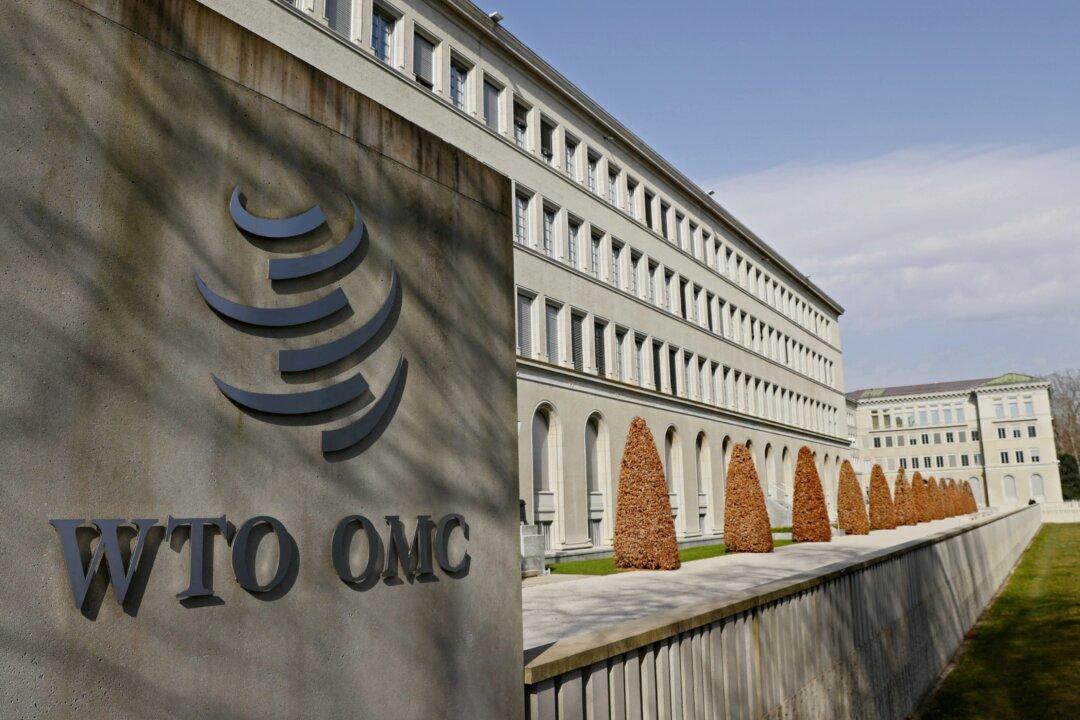The World Trade Organization (WTO) said on Nov. 26 that it was calling off a key upcoming ministerial meeting in Geneva, Switzerland, citing disruption to international travel sparked by the emergence of a new COVID-19 variant that the WTO described as “particularly transmissible.”
The WTO’s 12th Ministerial Conference (MC12) was scheduled to kick off on Nov. 30, but the announcement of travel restrictions and quarantine requirements in Switzerland and other European countries in response to the new variant, dubbed Omicron, prompted the transnational organization to announce it was postponing the meeting indefinitely.





